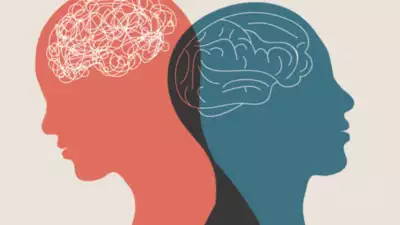In the evolving landscape of mental health discourse, the shift from crisis-oriented approaches to community-based responses marks a profound transformation in how we perceive and address mental health challenges. Traditionally, mental health issues have often been relegated to the realm of crisis intervention, where individuals receive support only when their symptoms reach a critical point. However, this reactive model fails to account for the multifaceted nature of mental well-being and neglects the importance of prevention and early intervention. In response to this limitation, there has been a growing recognition of the value of community-centered approaches that prioritize prevention, support, and empowerment. At the heart of the transition from crisis to community lies a fundamental reimagining of the role of communities in promoting mental health. Instead of viewing mental health solely as an individual concern, communities are increasingly being seen as vital sources of support and resilience. This paradigm shift acknowledges the interconnectedness of individuals within their social and cultural contexts, emphasizing the importance of fostering supportive environments that nurture mental well-being.

By leveraging existing community resources and networks, such as schools, workplaces, religious institutions, and social groups, collective responses to mental health challenges can reach individuals where they live, work, and socialize. Central to the concept of community-based responses is the idea of prevention through education and awareness. By equipping community members with the knowledge and skills to recognize early signs of mental distress and provide appropriate support, interventions can occur before crises emerge. This proactive approach not only reduces the burden on crisis services but also promotes a culture of empathy, understanding, and acceptance surrounding mental health. Through initiatives like mental health literacy programs, peer support networks, and stigma-reduction campaigns, communities can foster environments that prioritize mental well-being as a shared responsibility and Visit Website. Moreover, community-based responses emphasize the importance of inclusivity and cultural sensitivity in addressing mental health challenges. Recognizing that different communities may have unique beliefs, values, and practices regarding mental health, interventions must be tailored to meet the diverse needs of individuals and groups.
This requires collaboration with community leaders, cultural brokers, and grassroots organizations to co-create solutions that are respectful, relevant, and accessible. By embracing diversity and cultural competence, collective responses can bridge gaps in service provision and ensure that all members of the community feel supported and valued. Crucially, community-based approaches empower individuals to play active roles in their own mental health care journey. By fostering a sense of agency and self-efficacy, these approaches promote resilience and recovery while reducing reliance on professional interventions. Peer-led support groups, community-based therapy programs, and self-help initiatives empower individuals to share their experiences, learn from one another, and develop coping strategies in a supportive environment. Through collaborative decision-making and participatory action, communities can harness the collective wisdom and strengths of their members to address mental health challenges from within. In essence, the shift from crisis to community represents a paradigmatic change in how we conceptualize and respond to mental health challenges. By embracing the principles of prevention, inclusivity, and empowerment, collective responses to mental health not only enhance individual well-being but also strengthen the fabric of communities as a whole.
